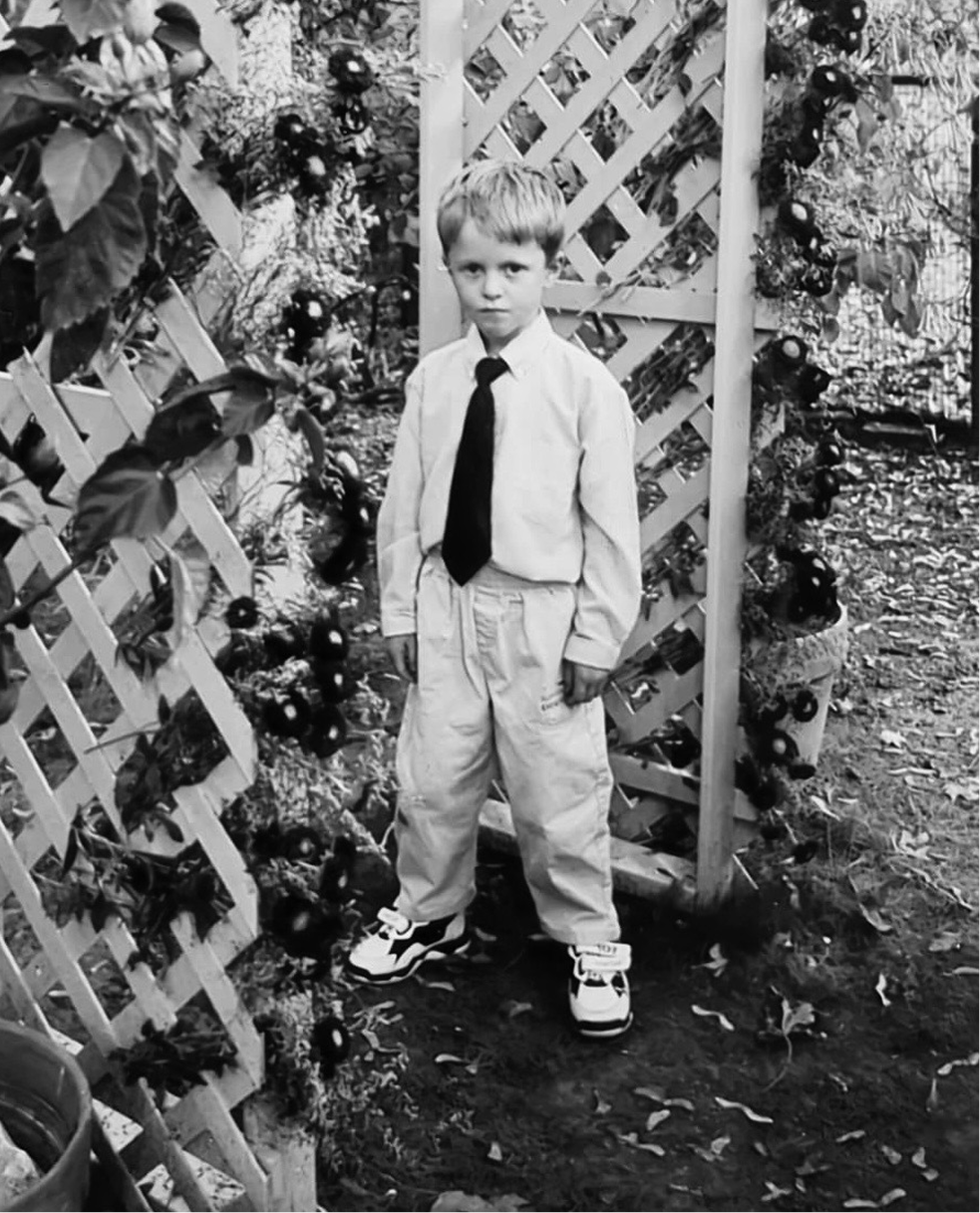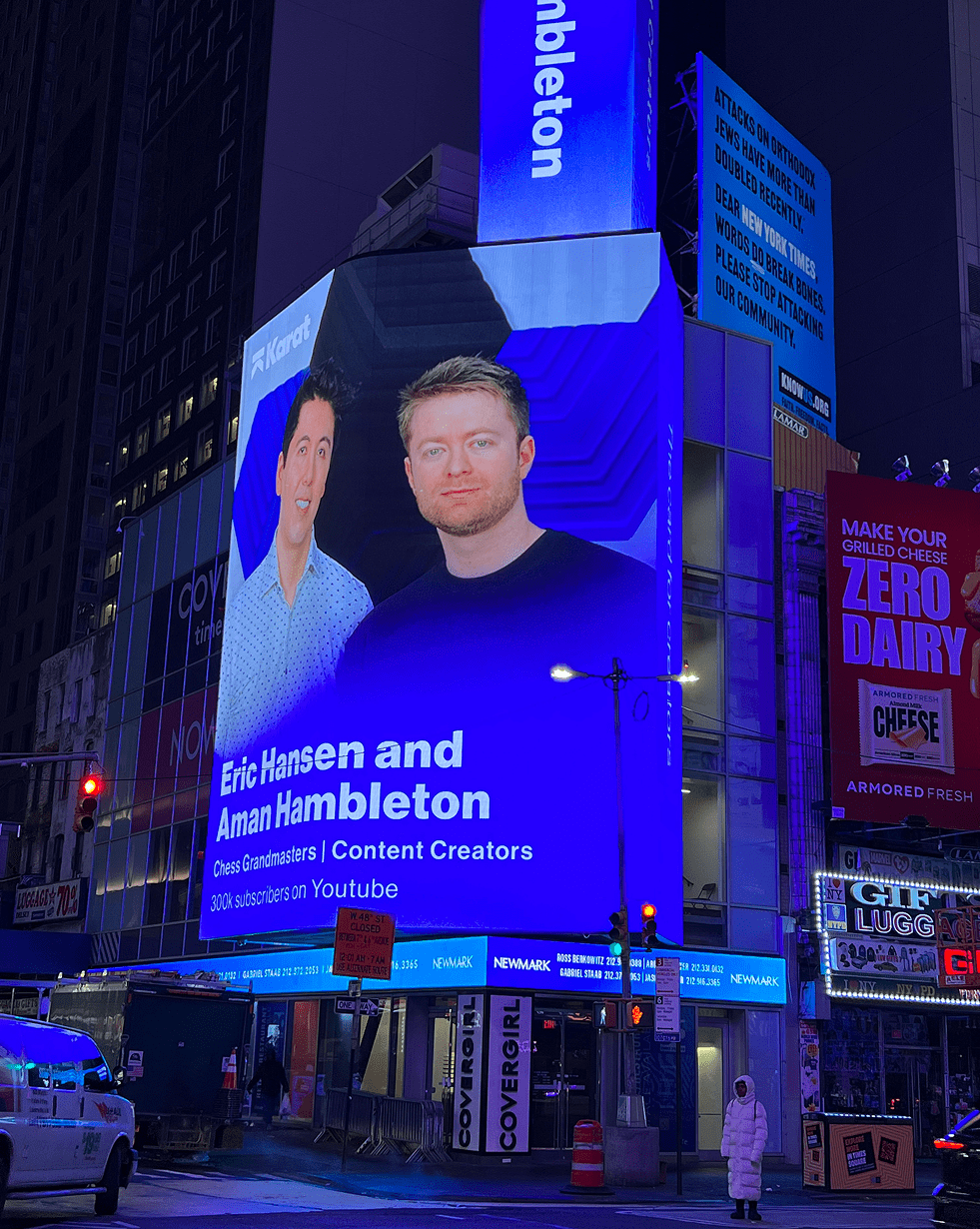Highlights & Achievements
2025 - July
Lead commentator and host at the Esports World Cup
2024 - April
Lead commentator and analyst at the FIDE Candidates
2022 - December
Defeated IM Lawrence Trent in chessboxing via TKO in round 1
2018 - September
Represented Canada at the Batumi Chess Olympiad
2018 - April
Earned Grandmaster (GM) title
2017 - August
1st place at the Canadian Open Championship
2017 - April
Defeated Alexei Shirov (2693) in Reykjavik, the best win of my career
2016 - September
Coach of Canadian Women’s Team at the Baku Chess Olympiad
2014 - September
Team Canada coach at the Durban World Youth Championship
2014 - August

Represented Canada at the Tromsø Chess Olympiad
2013 - January
Earned International Master (IM) title
2012 - August
Improved from 2250 ELO → 2500 ELO in 1 year
2010 - July
1st place at the Canadian Youth U18 Championship
2009 - August
Earned FIDE Master (FM) title
My Chess Journey
I learned chess at the age of five and began playing in tournaments a year later. My parents introduced me to a variety of sports and activities when I was a kid, but chess stood out - it was fun and came surprisingly naturally to me. I was not a chess prodigy by any means, but growing up in Eastern Canada, where the chess scene wasn’t particularly strong, I was consistently among the top players in my age group.
Over the years, I continued to improve, winning several championships with my high school team in Toronto. After a strong performance at the national championship, I was awarded my first chess title at the age of 16: FIDE Master. At the time, my international rating was only around 2100, and I still thought of chess more as a hobby than a serious pursuit.
My interest in chess faded somewhat toward the end of high school, but between 2010 and 2012, while attending university, I found myself completely addicted to online chess. I played thousands of games and became one of the stronger blitz and bullet players on the internet, often holding my own against top Grandmasters despite my lower FIDE rating.
In 2012, I made the decision to leave university before completing my Ivey Business degree at Western University to pursue chess full-time. That same year, I experienced immediate success at the World Junior Championships in Greece. Shortly after, Eric and I moved to Europe to live in Spain and the Netherlands. We did this in order to be closer to stronger tournaments and competition, and my rating jumped from 2244 to 2500 during this period.
I earned my International Master title in January 2013, and officially became a Grandmaster in April 2018, after promising not to shave my beard until I reached that goal. In hindsight, that was probably not the best idea, but maybe it was just the motivation I needed.
I learned chess at the age of five and began playing in tournaments a year later. My parents introduced me to a variety of sports and activities when I was a kid, but chess stood out - it was fun and came surprisingly naturally to me. I was not a chess prodigy by any means, but growing up in Eastern Canada, where the chess scene wasn’t particularly strong, I was consistently among the top players in my age group.

Over the years, I continued to improve, winning several championships with my high school team in Toronto. After a strong performance at the national championship, I was awarded my first chess title at the age of 16: FIDE Master. At the time, my international rating was only around 2100, and I still thought of chess more as a hobby than a serious pursuit.
My interest in chess faded somewhat toward the end of high school, but between 2010 and 2012, while attending university, I found myself completely addicted to online chess. I played thousands of games and became one of the stronger blitz and bullet players on the internet, often holding my own against top Grandmasters despite my lower FIDE rating.
In 2012, I made the decision to leave university before completing my Ivey Business degree at Western University to pursue chess full-time. That same year, I experienced immediate success at the World Junior Championships in Greece. Shortly after, Eric and I moved to Europe to live in Spain and the Netherlands. We did this in order to be closer to stronger tournaments and competition, and my rating jumped from 2244 to 2500 during this period.
I earned my International Master title in January 2013, and officially became a Grandmaster in April 2018, after promising not to shave my beard until I reached that goal. In hindsight, that was probably not the best idea, but maybe it was just the motivation I needed.
From Competitor to Communicator
It’s fascinating to look back at how one decision can shape everything. If I hadn't chosen to leave school and pursue chess as a professional, chessbrah may never have happened. Eric and I both committed to similar paths around the same time, which made it reassuring to know that I was not alone in this decision.
In 2014, we moved to Europe and spent a year living between Spain and the Netherlands. While in the Netherlands, Eric began streaming to the chessbrah channel from the basement of our apartment.
I started streaming more consistently in 2015 after moving back to Canada, at a time when chess had virtually no presence on Twitch. We were among the first to treat chess streaming as a form of entertainment, not just instruction, which is a philosophy that remains at the heart of chessbrah to this day.

Eric and Aman celebrate 300,000 subscribers on the chessbrah channel with a billboard featured in Times Square, New York City.
After achieving my Grandmaster title in 2018, I made it a personal priority to focus on streaming and content creation full-time. Becoming a Grandmaster was all I ever set out to do with chess, so it was immensely fulfilling to know that I had reached my goal.
Since 2019, I've been semi-retired from competitive chess, focusing instead on producing live content and videos, hosting meet-ups, commentating major events, and creating educational series and courses.
More than a decade has passed since the first chessbrah stream, and I'm grateful to still be doing what I love. The initial purpose of the channel was to promote and grow the game of chess. It's been meaningful to see that growth take place over the years, and to see so many people develop a new appreciation for the game.
From Competitor to Communicator
It’s fascinating to look back at how one decision can shape everything. If I hadn't chosen to leave school and pursue chess as a professional, chessbrah may never have happened. Eric and I both committed to similar paths around the same time, which made it reassuring to know that I was not alone in this decision.
In 2014, we moved to Europe and spent a year living between Spain and the Netherlands. While in the Netherlands, Eric began streaming to the chessbrah channel from the basement of our apartment.
I started streaming more consistently in 2015 after moving back to Canada, at a time when chess had virtually no presence on Twitch. We were among the first to treat chess streaming as a form of entertainment, not just education, which is a philosophy that remains at the heart of chessbrah to this day.
After achieving my Grandmaster title in 2018, I made it a personal priority to focus on streaming and content creation full-time. Becoming a Grandmaster was all I ever set out to do with chess, so it was immensely fulfilling to know that I had reached my goal.
Since 2019, I've been semi-retired from competitive chess, focusing instead on producing live content and videos, hosting meet-ups, commentating major events, and creating educational series and courses.
More than a decade has passed since the first chessbrah stream, and I'm grateful to still be doing what I love. The initial purpose of the channel was to promote and grow the game of chess. It's been meaningful to see that growth take place over the years, and to see so many people develop a new appreciation for the game.





